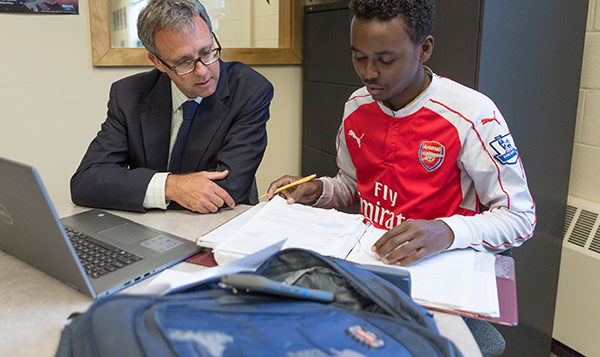Starting or returning to college after a period of incarceration can feel intimidating. Whether or not you started before or during your incarceration, we have tools and resources to help the transition.
Assess Your Readiness
The motivation to dive right into a degree or certificate program is exciting, but it’s also important to make sure you’re ready. In order to be academically successful, it’s important to make sure your basic needs are met. Housing, employment, and recovery support, if necessary, should be in place before you start or continue a college program. Review our handy Student Success Checklist, which will help you set a good foundation. We also recommend meeting with a FAME College Access counselor and/or connecting with the Maine Education Opportunity Center to help with the planning process.
Consider and Address Barriers
If you have been to college before, consider whether or not you are in good standing on any federal student loans and that you do not owe money to any colleges. Defaulted student loans will result in delays to financial aid processing until the default is resolved, and owing money to a college can prevent the release of transcripts required for admission and/or impact the ability to register for classes. Contact prior colleges to request transcripts and find out if you owe a balance. Log in to Federal Student Aid to review your prior federal student loans. If you have not created a Federal Student Aid account yet, you can watch this helpful video for step-by-step instructions.
Apply for Financial Aid
Once you have addressed any barriers, you’re ready to apply for financial aid. Paying for college is a step-by-step process, and we have lots of resources to help you. You can apply for admission to college and complete the financial aid process at the same time. Keep in mind that you won’t receive your financial aid offer until you are accepted for admission. Remember to file the Free Application for Federal Student Aid (FAFSA) every year you intend to receive financial aid for your program.
Find a Balance
You may be juggling work, school, recovery, and family obligations. In order to stay on track and remain academically successful, find a balance that works for you. This may mean going to school part-time while working, making child care arrangements, scheduling classes around recovery meetings, and more. No two students will have the same schedule or system; prioritize your life in a way that works for you so you can be successful.
Get Financially Ready
Post-incarceration or not, one of the most important parts of preparing for education is to get as financially ready as possible. In addition to applying for financial aid, it’s also critical to save as much money as possible, create a working household budget, and make a plan for how to pay for your education. If you need support to become financially ready, visit the Your Money, Your Goals: Focus On Reentry guide from the Consumer Financial Protection Bureau, connect with community resources, and explore our Steps to Financial Wellness for success.
Follow-Up and Stay Connected
The goal is not to just get in to college but to complete your program and earn your degree. Make sure your support system is in place; academically, professionally, and personally. Connect with peers, your advisor, your sponsor, and your instructors throughout the process. Seek out resources on campus that will help you succeed, and know that FAME is here to support you every step of the way.
Do you have a military connection? If so, you or your family members may have access to specific military-service-related educational opportunities and benefits. Consider these resources and programs as you plan your future.




